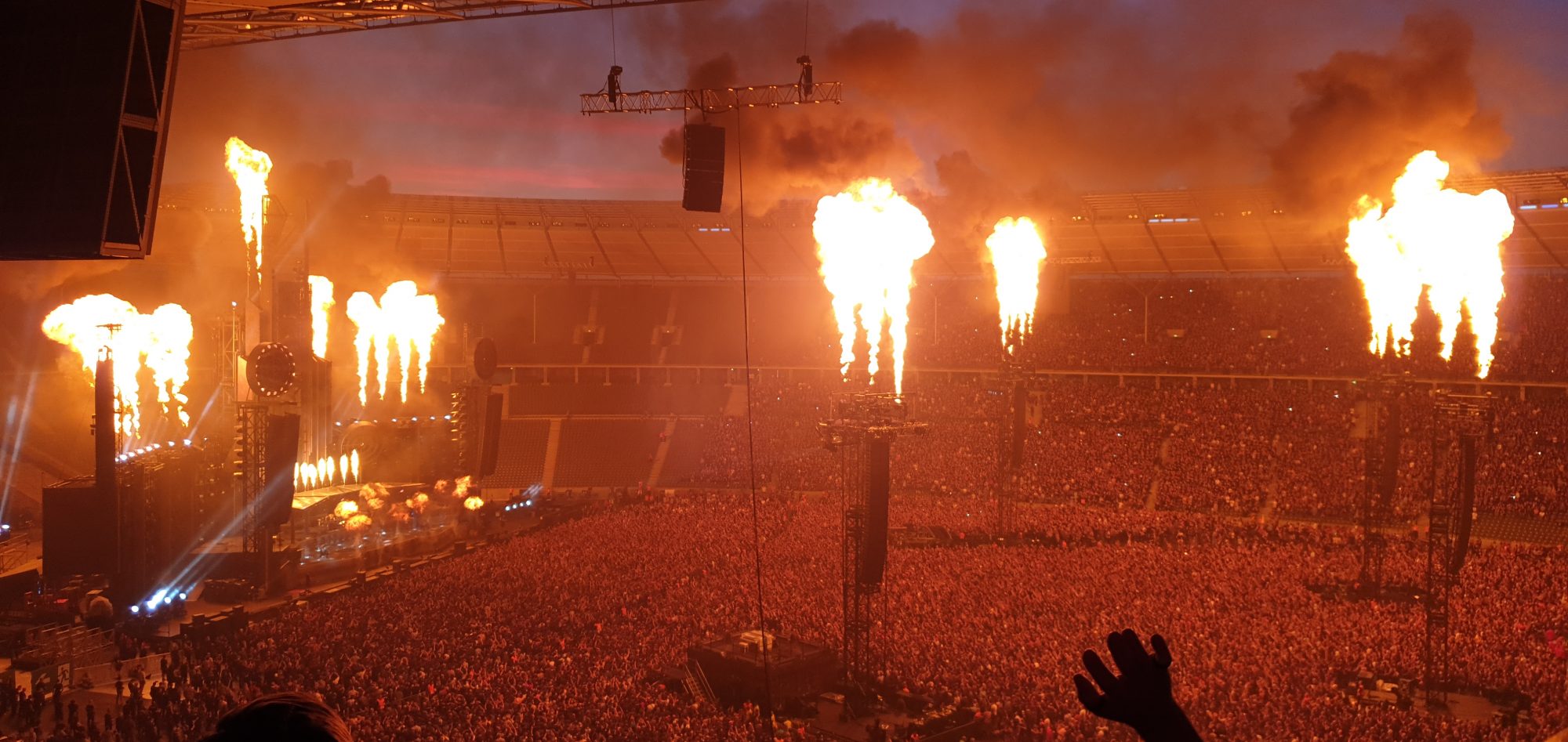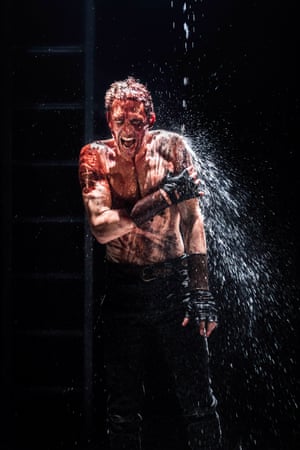Das, was auch ich hier immer so salopp „KRITIS“ nenne, sind eigentlich ganz genau die „Empfehlungen zum Umgang mit KRITIS bei zu erwartendem sprunghaften Anstieg der SARS-CoV-2 Fälle mit Omikron-Variante“. Diese Empfehlungen kamen im Dezember zur Weihnachtszeit von den Landesgesundheitsämtern und waren zusammen mit den Gesundheitsministerien der Länder und des Bundes erarbeitet worden. „KRITIS“ steht für kritische Infrastruktur. Dazu gehört der gesamte medizinische und pflegerische Bereich, aber zum Beispiel auch der gesamte lebensmittelerzeugende Bereich, und natürlich so Bereiche wie Energieversorgung, Polizei, etc etc.
Bei diesen Empfehlungen geht es um Ausnahmen von den Absonderungsregeln, wenn man so will. Diese stehen nicht im IfSG, sondern in den Absunderungsverordnungen der Länder. Das IfSG muss hierfür also nicht geändert werden, weil es damit überhaupt nix zu tun hat.
Diese Empfehlungen zur Aufrechterhaltung der KRITIS sahen einen Stufenplan vor, wie Kontaktpersonen und im Extremfall auch positiv Getestete arbeiten dürfen.
In der ersten Stufe sollten KP und symptomlos Infizierte im Home Office arbeiten, wo möglich. Geht das nicht, dann sollten geboosterte symptomlose KP vor Ort arbeiten dürfen (tägl. Testpflicht). Reicht das nicht, dann sollten vollständig (also 2x) geimpfte, symptomlose KP nach 7 Tagen schon (im Extremfall auch früher) vor Ort arbeiten dürfen (tägl. Testpflicht). Reicht das immer noch nicht, dann sollten im absoluten Ernstfall auch ungeimpfte oder nicht vollständig geimpfte symptomlose KP nach 7 Tagen (im Extremfall auch früher) vor Ort arbeiten dürfen (tägl. Testpflicht).
Erst wenn das alles nicht reicht, um die kritische Infrastruktur aufrecht zu erhalten, dann sollten im äußersten Notfall symptomlos positiv getestete Personen vor Ort arbeiten dürfen, allerdings eigentlich so, dass kein Kontakt zu nichtinfizierten Personen besteht.
Wichtig dabei ist auch, dass die generelle Pflicht zur Absonderung weiter besteht, es geht hier also nur um sogennante Wechsel- oder Arbeitsquarantänen. Sprich: man darf arbeiten gehen, muss sich aber privat weiter absondern.
Nun muss man auch bedenken, dass die Absonderungsregeln im Dezember noch etwas anders waren, seitdem hat sich viel verändert. Hauptsächlich, dass enge Kontaktpersonen überhaupt nicht mehr in Quarantäne müssen (im Dezember waren es noch 10 Tage, es sei denn, man war vollst. geimpft/geboostert). Das hat natürlich eigentlich zur Folge, dass viele Arbeistskräfte weiter zur Verfügung stehen, die nicht mehr in Quarantäne müssen, aber das reicht halt mittlerweile vielerorts auch nicht mehr.
Ich finde nebenbei gesagt die Überschrift „BaWü ist das erste Land, wo das erlaubt ist“ etwas erheiternd, denn das hat absolut nix mit den Bundesländern zu tun. Das klingt so, als würde hier flächendeckend und nur in BaWü etwas eingeführt, wenn in Wahrheit nur einfach jeder Betrieb oder jede Einrichtung individuell und formlos beim zuständigen Gesundheitsamt den „KRITIS“-Bedarfsfall anzeigen muss, egal in welchem Bundesland.
Anyway, für niemanden überraschend (außer wahrscheinlich für unsere Bundesregierung) sind wir nun in der Situation, dass vielerorts die Versorgung in den Krankenhäusern nicht mehr aufrecht erhalten werden kann, wenn nicht auch positiv getestetes Pflegepersonal und Ärzte zur Arbeit kommen. Eigentlich nur, wenn sie asymptomatisch sind, aber ich könnte mir vorstellen, dass manche auch mit Symptomen arbeiten kommen, wenn es irgendwie geht. So groß ist die Verzweiflung mittlerweile.
Wie ist das zu bewerten? Ist scheiße, und man kann jetzt viel darüber diskutieren, wie es dazu gekommen ist und was man hätte alles machen können, um es zu verhindern. Das ändert aber nix daran, dass die Patienten im Krankenhaus, oder die pflegebedürftigen Menschen im Heim versorgt und/oder behandelt werden müssen. Da bin ich dann doch eher ergebnisorientiert.
„Kein Kontakt“ zu nichtinfizierten Personen ist dabei natürlich in vielen Fällen nur ein frommer Wunsch. Ich meine, auf einer Corona-Station sehe ich da überhaupt kein Problem, da sind sowieso alle positiv. Da muss eher darauf geachtet werden, dass nicht noch mehr Kollegen angesteckt werden. Aber ansonsten wird sich das oftmals nicht verhindern lassen. Aber da bin ich dann fatalistisch (zynisch?) und sage, wenn man sich nicht bei der infizierten Pflegekraft ansteckt, dann halt bei einer Person, die (noch) nicht weiß, dass sie positiv ist. Das kann der Zimmernachbar sein, die Putzkraft, eine Pflegekraft, Krankenschwester, Arzt, whatever. Mittlerweile ist einfach soviel Virus im Umlauf, dass man ihm ja gar nicht mehr entgehen kann, schon gar nicht im Krankenhaus, wo viele Menschen zusammenkommen.
Ich weiß nicht, wie im Falle einer Ansteckung die Rechtslage zum Thema Haftung ist. Da die infizierte Person ja ausdrücklich arbeiten darf, glaube ich nicht, dass sie dann in die Haftung genommen wird. Außerdem stelle ich mir die Beweisführung extrem schwierig vor. Wie will man denn beweisen, dass man sich genau bei dieser einen, positiv getesteten Krankenschwester angesteckt hat? Die DNA der jeweiligen Erreger bestimmen und vergleichen?
Keine Ahnung, vielleicht wird es ja hierzu mal Verfahren geben, dann wissen wir mehr.
Ich weiß auch nicht, was das Arbeitsschutzgesetz hier sagt, oder sagen kann. Klar, muss eigentlich auch ein Arbeitgeber dafür sorgen, dass kein kranker Mitarbeiter zum Dienst erscheint. Aber wir befinden uns hier in einer absoluten Extremsituation. Da muss man vielleicht auch mal etwas flexibler sein?
Ich weiß nicht. Wer mir schon länger auf Twitter folgt, der weiß wohl, wie sehr mich die völlig verbockte Pandemiepolitik der GroKo und der Ampel zur Weißglut treibt. Wir müssten nicht in dieser Situation sein.
Da wir es aber nun mal sind, müssen wir irgendwie damit klarkommen. Dazu gehört dann auch, dass positiv gestetetes medizinisches/pflegerisches Personal arbeiten geht, damit die Menschen versorgt und behandelt werden können, die es benötigen. Wie gesagt, da bin ich ergebnisorientiert. Man könnte auch sagen, ich bin desillusioniert. Geht doch sowieso alles in den Arsch mit der Pandemie.
Denn auch diese Maßnahme wird nicht ausreichen, um die KRITIS am Laufen zu halten, und deshalb wird noch vor dem Herbst die verpflichtende Isolation ganz abgeschafft werden. Dann ist sowieso Wild West und jeder steckt jeden an.
Was soll’s?






